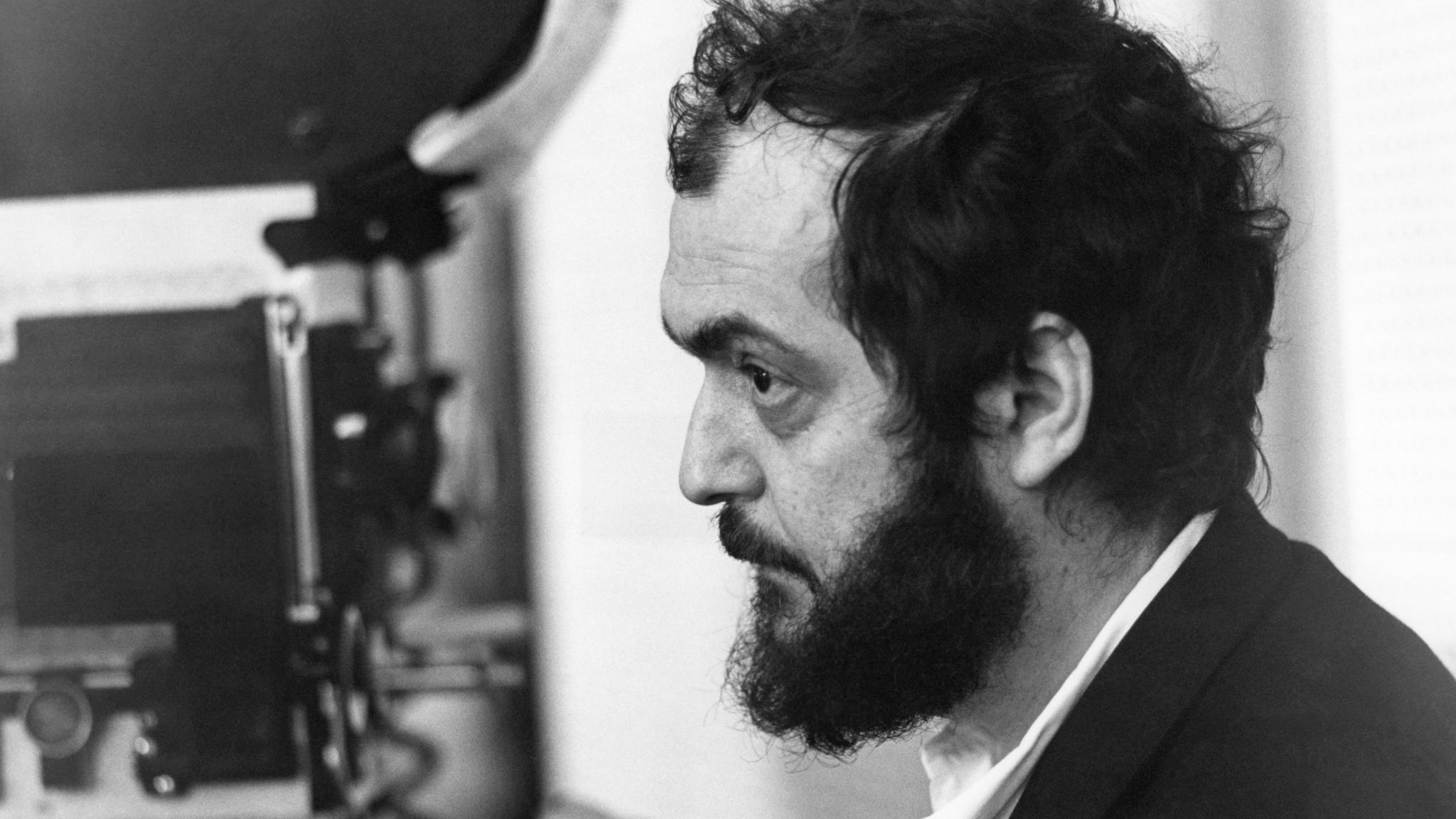Dr Strangelove: Armando Iannucci pens first stage adaptation of a Stanley Kubrick film
- Published
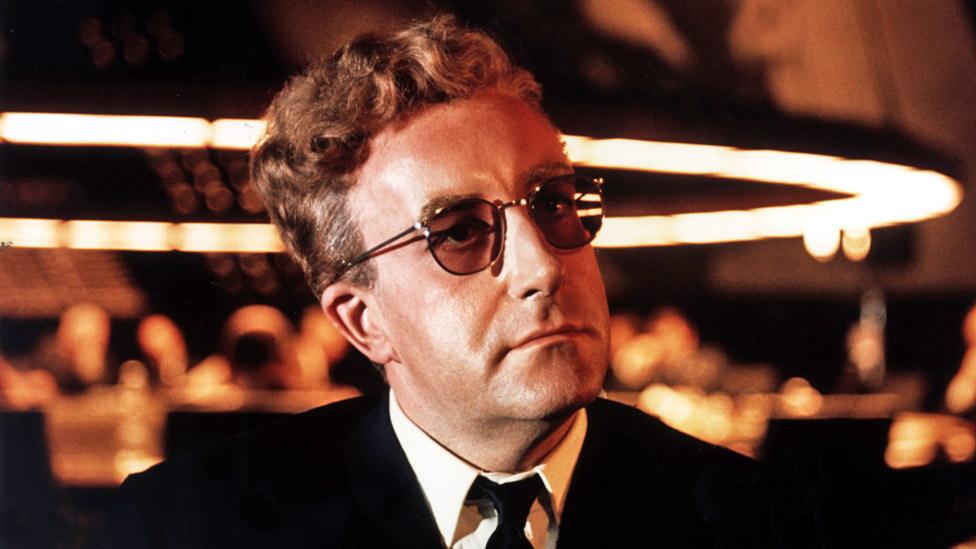
Comedy legend Peter Sellers played the title role - and two more - in Dr Strangelove
The family of director Stanley Kubrick have given their blessing for one of his classic films to be adapted for the stage for the first time.
His 1964 apocalyptic Cold War comedy Dr Strangelove will be staged by Armando Iannucci, who is known for TV political satires The Thick of It and Veep.
"As a story, weirdly it hasn't gone away," Iannucci told BBC News.
"It seems the right time to remind people of the mad logic behind these dangerous games that superpowers play."
The show will be staged in London's West End next autumn, co-written and directed by double Olivier Award winner Sean Foley.
Speaking on BBC Radio 4's Today programme on Saturday Iannucci joked: "In these sad times, what better way to cheer the nation up than a stage show about the end of the world."
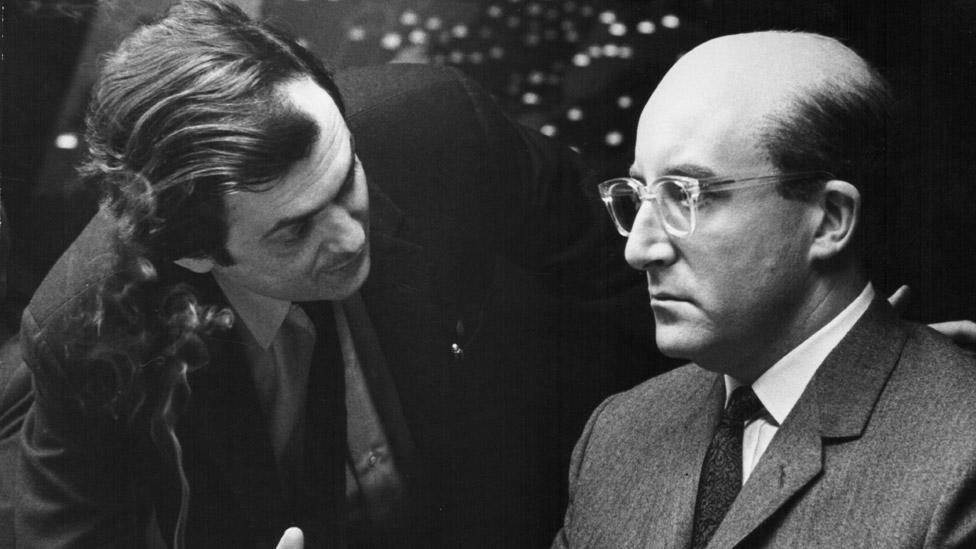
Director Stanley Kubrick (left) with Sellers in character as the US president
Kubrick's widow Christiane said: "We have always been reluctant to let anyone adapt any of Stanley's work, and we never have. It was so important to him that it wasn't changed from how he finished it.
"But we could not resist authorising this project: the time is right; the people doing it are fantastic; and Strangelove should be brought to a new and younger audience. I am sure Stanley would have approved it too."
Discarded scenes
Daughter Katharina Kubrick added: "The subject matter of this film is particularly relevant again in our prevailing political climate.
"People often laugh when they would rather cry, and this is exactly how the film, and now the play, handles the possibility of the ultimate destruction of life on Earth; certainly, an important topic amongst many, to concentrate the mind."
The late director's family also granted access to Kubrick's archive, in which Iannucci said he had found papers relating to the film including "some discarded scenes, first drafts [and] moments that they were going to shoot and then decided not to".
He added: "There are little shards of ideas there, and one or two of them have developed into full-scale new moments and new scenes in the final [play]."
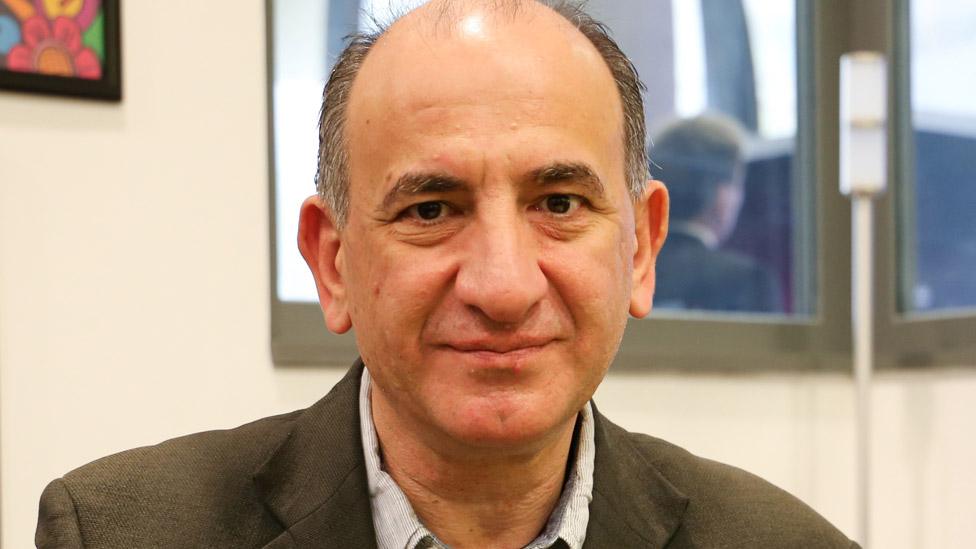
Armando Iannucci is known for his TV and film work, but this is his first theatre project
Dr Strangelove or: How I Learned to Stop Worrying and Love the Bomb - to use its full title - was released two years after the Cuban missile crisis brought the world to the brink of nuclear war.
Foley said it's not hard to see "the relevance to the idea of a type of Cold War between the West and Russia" today.
"That's sadly come very much back into our lives," he said. "You don't have to look very far to understand a kind of relevance about the potential for nuclear conflict, given what's going on with the invasion of Ukraine and everything that Putin is saying."
Message 'with a smile'
Iannucci added: "Not just with the war in Ukraine, but also the whole apocalyptic sense of global warming and so on - it feels like a very relevant reassertion of the message that, this is the madness staring at us if we don't do anything about it.
"And currently, we aren't doing anything about it. So the outcome is not good.
"But if you can leave the theatre with that message and a smile, then all the better."
The pair have decided to keep the story set in the 60s, and Iannucci said it would feel both "retro" in its setting, and up-to-date with some of his trademark dialogue.
"It's got one foot in the 60s and one foot in the present day," he said.
Foley added: "There's something about how the men of that era behave in the film, and there was a specificity around the Cuban missile crisis and all of those things.
"And the look of it is great, so we quickly decided we're going to keep it in that period and let the obvious resonances just echo."
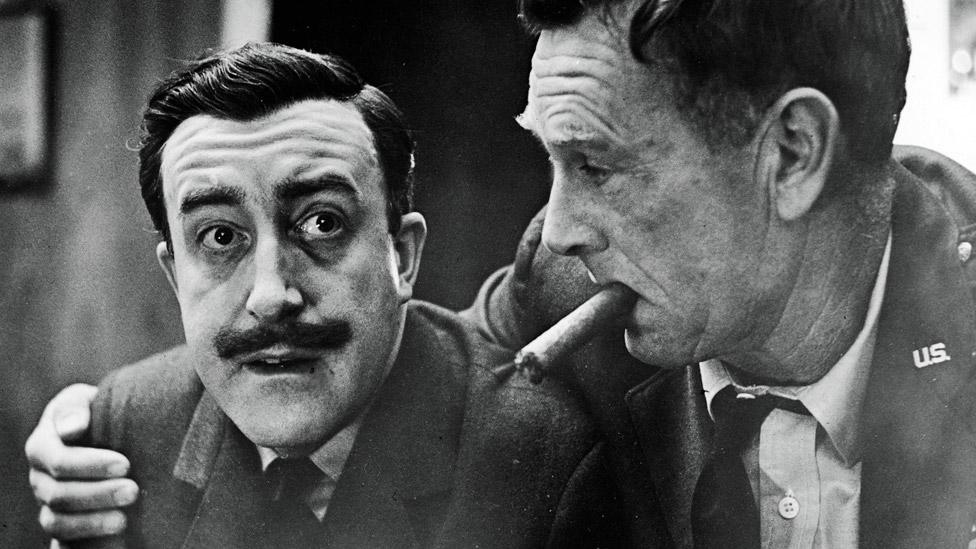
General Jack Ripper (Sterling Hayden, right) reassures Sellers' Group Captain Lt Mandrake
The film famously starred Peter Sellers in three main roles - the titular German scientist, a British officer who discovers a US general has unilaterally ordered a nuclear attack on the Soviet Union, and the American president who must attempt to avert all-out annihilation.
The stage version is now seeking a star to play multiple roles - albeit without the luxury of the time Sellers had to change costumes and make-up.
"They've got to be a great comic actor, of which we have very many," said Foley, who is artistic director of the Birmingham Rep. "They've got to be of that shape-shifting kind of quality. They've got to want it.
"It's going to be a really tough gig. I'm sure some people, when we approach them, are going to go, 'No way, I'm not going to be compared with Peter Sellers in those roles.'
"But there will be someone who has the appetite and skill and talent and sees the opportunity to do it in their own way."
Partygate play
In Dr Strangelove, many of those holding great power over millions of lives are depicted as often actually being inept, ridiculous, reckless or unhinged. That's a strand of political satire that Iannucci picked up in his work like The Thick of It, US version Veep, and 2017 black comedy The Death of Stalin.
"It's these individuals who are very human and very fallible, and yet on whose word and actions ride the fate of, in Stalin's case millions, and in Dr Strangelove's case humanity," he said.
The writer and director is now also working on another theatre project about Boris Johnson and his role in the pandemic and Partygate, although full details have not yet been announced.
"Rather than trying to do a TV exploration of what's happening now, doing something live on stage feels like just the right moment to do it," Iannucci said of that play.
"Also, in the last three years, we've been so enclosed in our homes because of the lockdown, and have got addicted to our screens, so actually going out and seeing something live and in the flesh is all the more exciting. That's what excites me about actually doing it as a live stage show."
Related topics
- Published29 March 2015
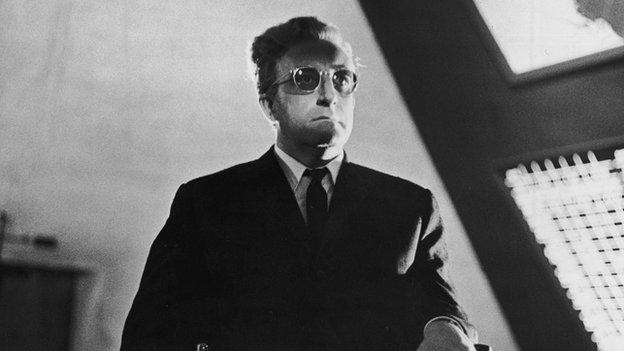
- Published22 January 2020
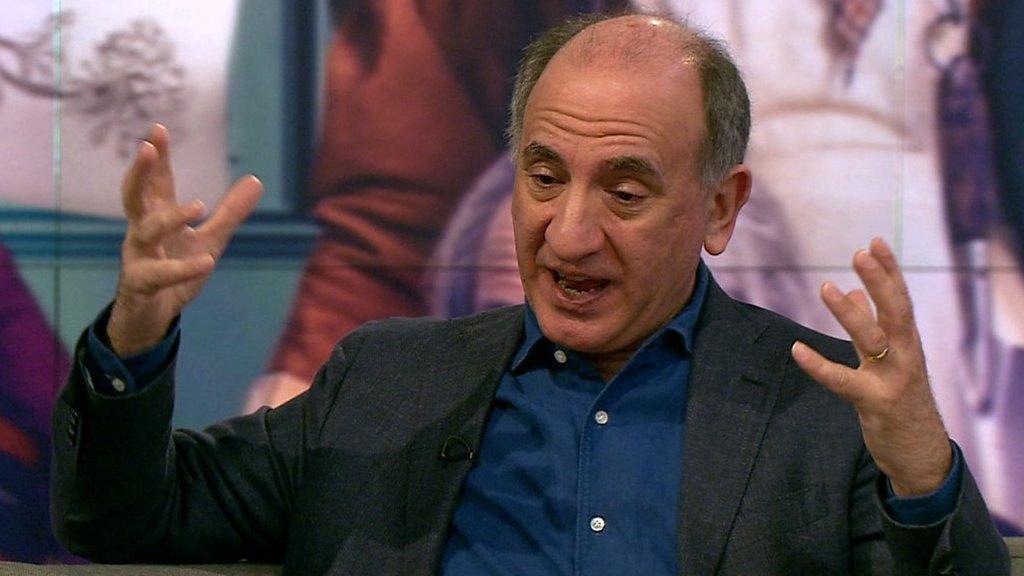
- Published16 July 2018
